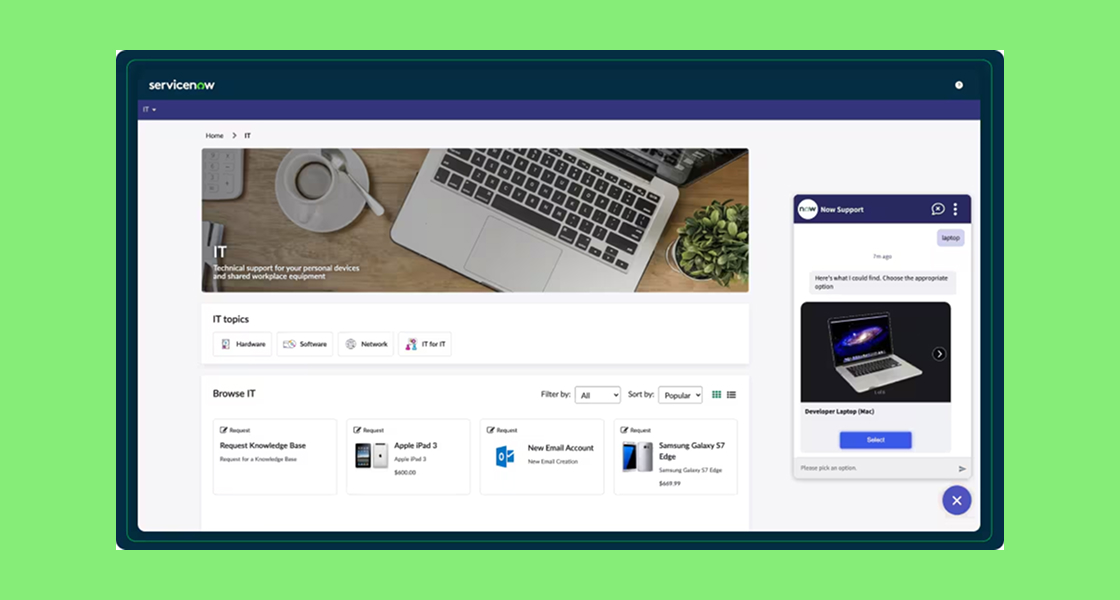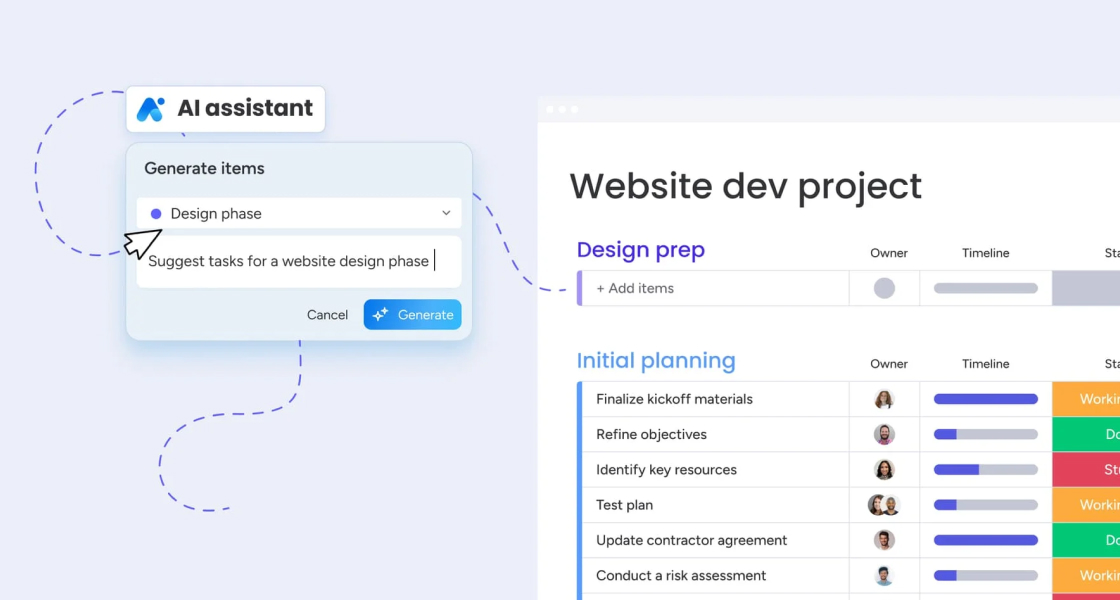Freshdesk Connected: How to boost collaboration and support the smart way

In a world where speed and personalization make all the difference, the quality of customer support has become a decisive factor for business loyalty and growth. It’s no longer just about resolving issues, but about doing so quickly, seamlessly, and with a frictionless experience.
Freshdesk, as a helpdesk platform, becomes even more powerful when connected with collaboration tools like Slack, Microsoft Teams, and monday.com. These integrations enable support teams to respond faster, streamline internal communication, and enhance satisfaction for both agents and customers.
In this comprehensive guide, you’ll discover how to make the most of these integrations. Whether you manage an IT team or lead customer support for a growing company, here you’ll find the key strategies to transform your operations and deliver a truly seamless customer experience.
Why Integrate Freshdesk with Collaboration Tools?
Customer service teams today often operate in fast-paced, distributed environments. While Freshdesk is an excellent helpdesk solution, agents frequently toggle between multiple tools to stay informed, collaborate with colleagues, or escalate complex tickets. This fragmentation can lead to:
- Communication silos between teams
- Delayed responses to critical customer issues
- Reduced agent productivity due to frequent context-switching
- Lack of visibility into support processes
- Missed opportunities for continuous improvement
Integrating Freshdesk with collaboration platforms like Slack and Microsoft Teams breaks down these barriers, allowing support agents to engage with colleagues, share insights, and resolve customer queries without leaving their primary workspace. Let’s look at the concrete benefits:
- Streamlined ticket resolution: Instant notifications and threaded discussions help agents address issues and communicate faster.
- Centralized communication: All ticket-related conversations, attachments, and updates can be easily viewed and accessed in one place.
- Real-time escalation: Urgent tickets or service outages can be escalated to the right team, eliminating delays.
- Effortless knowledge sharing: Agents can crowdsource solutions from subject matter experts in a shared channel, reducing reliance on email or lengthy handovers.
- Better reporting and transparency: Integration often brings better visibility into ticket progress, helping teams identify bottlenecks and improve SLAs.
Top Collaboration Tools to Integrate with Freshdesk
Freshdesk’s extensive marketplace and open APIs make it possible to connect with various collaboration and productivity platforms. Here are the most impactful Freshdesk integrations for customer support collaboration:
- Slack: Enables real-time notifications, ticket discussions, and updates directly within Slack channels.
- Microsoft Teams: Facilitates cross-departmental teamwork and ticket management, enhancing communication for remote or distributed teams.
- Project Management Tools (e.g., monday.com): Bridges the gap between support and development, so feature requests and bug reports are actioned promptly.
- CRM and Marketing Platforms: Ensures support agents have full context of the customer journey, fostering personalized interactions.
For the purpose of this guide, we’ll focus primarily on helpdesk with Slack and Teams integration with Freshdesk. We will also examine how project management integrations can further streamline your workflows.
Real-World Use Cases: How Companies Streamline Support Collaboration
Integrating your helpdesk with Slack, Teams, or project management tools is not just about convenience, it’s about driving real business value. Here are common scenarios where Freshdesk integrations have a transformative impact:
- Rapid Incident Response: A sudden service outage triggers a critical ticket in Freshdesk. Thanks to Slack integration, on-call engineers receive an instant ping in a dedicated #incidents channel, along with ticket context. The team responds within minutes, updating the ticket as they troubleshoot via Slack, keeping all stakeholders in the loop.
- Cross-Team Escalation: A complex customer inquiry is automatically routed from Freshdesk to a #product-escalations channel in Teams. Product managers and developers join the discussion, contributing solutions and documenting the final resolution, all recorded for future reference.
- Feature Request Alignment: An agent notes a recurring feature request from customers. With one click, the ticket is sent from Freshdesk to Trello as a new card in the product backlog. The product team prioritizes and schedules the work, with status updates reflected back in Freshdesk so agents can close the loop with customers.
- Automated SLA Management: If a ticket nears its SLA deadline, Freshdesk sends an automatic warning to both the agent and leadership in Slack or Teams, ensuring timely intervention and improved compliance metrics.
- Internal Knowledge Sharing: Agents unsure about a policy or technical fix can post the Freshdesk ticket in #support-help channels. Team members collaborate in real time, accelerating learning and improving first contact resolution.
Best Practices for Maximizing Freshdesk Integrations
To fully realize the benefits of customer support collaboration, consider these proven best practices:
- Customize Notifications: Avoid channel overload by limiting notifications to only high-impact ticket events or specific ticket types. Leverage notification rules and filters to match your team’s workflow.
- Define Escalation Paths: Clearly map out which channels or groups handle specific ticket categories or urgencies. Use integration rules to automate ticket routing to the right Teams or Slack channel.
- Monitor and Iterate: Regularly review integration analytics, such as notification response times and ticket resolution metrics, to optimize your notification strategy.
- Empower Collaboration: Encourage agents to use Slack or Teams channels as forums for brainstorming solutions and sharing knowledge, not just for receiving alerts.
- Leverage Automation: Explore workflow automations that trigger based on ticket properties (e.g., tagging, escalation, closing), minimizing manual intervention and preventing human error.
- Maintain Data Security: Ensure integration permissions and access levels comply with your organization’s security policies to safeguard sensitive customer data.
Common Challenges and How to Overcome Them
Like any technology implementation, Freshdesk integrations may present challenges. Here’s how to address common obstacles:
- Too Many Notifications: Agents can quickly become overwhelmed by irrelevant alerts. Solve this by segmenting notifications, send critical ticket escalations to a high-priority channel, while routing general updates to another channel.
- Poor Adoption: Change management is crucial. Provide training, share success stories, and gather feedback from users to ensure widespread adoption of the new workflows.
- Integration Complexity: Some custom workflows may require using Freshdesk Automations or third-party integration platforms like Zapier. Build, test, and document workflows in phases for manageable deployment.
- Security and Compliance: Work with your IT or InfoSec team to validate that integration permissions align with your organization's compliance requirements.
Measuring the Impact of Streamlined Support Communication
Once your Freshdesk integrations are live, it’s essential to track KPIs that reflect improved customer support collaboration. Consider monitoring the following metrics:
- First Response Time: With real-time notifications, are agents responding to tickets faster?
- Average Resolution Time: Are escalations and handoffs to product or technical teams reducing time to resolution?
- Agent Productivity: Has the amount of time spent context-switching between apps decreased?
- Customer Satisfaction (CSAT): Do post-resolution surveys indicate an improvement in customer perception?
- Ticket Handling Collaboration Rate: How often are agents collaborating or referencing Slack/Teams discussions for ticket solutions?
Regularly reviewing these KPIs will help guide future integration enhancements and ensure that your helpdesk with Slack, Teams, or project management software is achieving its intended benefits.
Future-Proofing Customer Support Collaboration
As customer support expectations continue to rise, forward-thinking organizations are investing in integrative, connected workspaces. Emerging trends like AI-driven chatbots, automated response suggestions, and omnichannel support all depend on solid foundations, a well-integrated helpdesk and collaboration environment.
By proactively connecting Freshdesk with your preferred collaboration tools today, you set the stage for future automation and continuous improvement. Whether you choose to leverage workflow automations, advanced analytics, or AI-driven insights, your business can consistently exceed customer expectations with agility and confidence.
Taking the Next Step Toward Seamless Support
Integrating Freshdesk with collaboration tools like Slack, Microsoft Teams, and monday.com is no longer a nice-to-have, it’s a competitive necessity. Connecting your helpdesk with real-time communication channels empowers agents to work more cohesively, resolve tickets faster, and deliver experiences that truly resonate with customers.
Adopting these integrations not only boosts speed and operational efficiency, but also drives continuous improvements in satisfaction, productivity, and retention. In a world where customer experience defines business success, strengthening internal collaboration translates into service that feels more human, responsive, and memorable.
Ready to transform the way you deliver support? Explore the Freshdesk Marketplace, discover the integrations that best fit your organization, and if needed, our experts can help you design a tailored workflow.
The future of support is already here, start today by building a team that’s more connected, more agile, and fully equipped to exceed every customer expectation.















